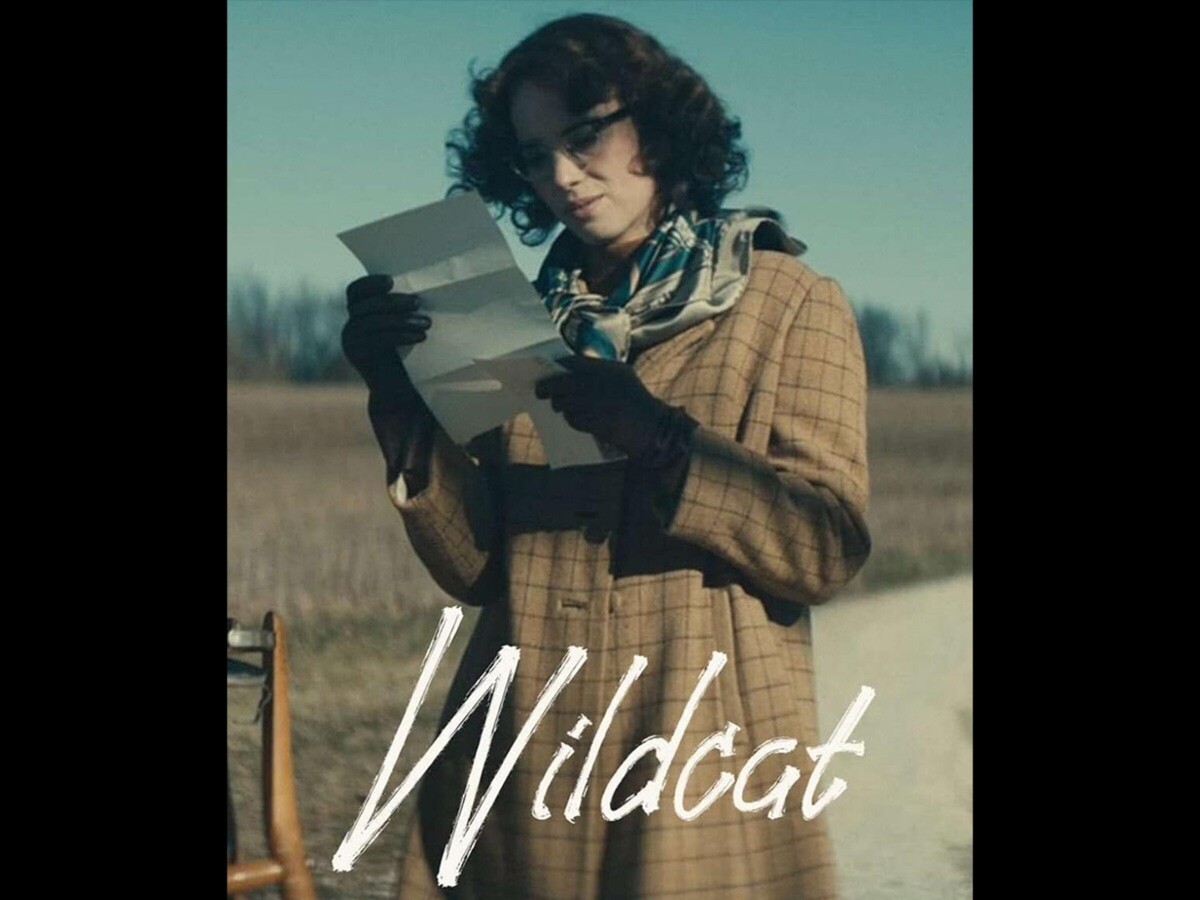Image

Wildcat, the new Flannery O'Connor biopic, made the rounds on the film festival circuit back in September, and the reviews from critics are now out.
None of the movie was filmed here in Baldwin County or anywhere else in Georgia, for that matter, and principal photography took place in Kentucky, primarily Louisville...
Wildcat, according to its IMDB page, "follows the life of writer Flannery O'Connor while she was struggling to publish her first novel," a period of time when O'Connor was in her mid 20s and several years removed from graduating from Georgia State College for Women, now Georgia College & State University. Also around this time is when O'Connor is diagnosed with lupus, the medical condition that claimed the life of her father when she was 15.
The movie most likely fits the bill of a biopic, although a healthy chunk of Wildcat is cut-away scenes from various O'Connor short stories...
Not yet available for public consumption, producers of the movie presumably are now shopping for a buyer, whether it's Netflix or some other streaming service.
The Rotten Tomatoes score for Wildcat currently is 63 percent, a composite of 24 reviews from various critics (15 "ripe tomatoes" and nine "rotten splattered tomatoes"). Here's a sampling of reviews:
• Entertainment Weekly – "Wildcat is a passion project for Ethan and Maya Hawke, generated by their affectionate father-daughter relationship and their mutual appreciation of O'Connor, as they shared at a post-screening Q&A at the Telluride Film Festival. Hawke effectively directs his daughter through a gauntlet of a performance, but one wonders if their intense passion for the subject matter prevented them from seeing the forest for the trees. The film suffers from a lack of focus, ping-ponging between O'Connor's personal life and the content of her stories. The result is, sadly, a muddled mess."
Entertainment Weekly concluded that the film "would be better if it had decisively opted for one approach — biopic or short story anthology."
Added the review: "There's beautiful imagery at play here throughout, and admiration for O'Connor's struggle to stay true to herself and the strangeness of her work seeps from the movie in every frame. Despite its shortcomings, Wildcat possesses a palpable love for the subject matter. But passion alone does not a good film make, and everything that rises to the forefront of this film does not, at all, converge. Grade: C+"
• The Hollywood Reporter – In a much more glowing review, this review surmises that "Wildcat casts a similar spell, so rich is it in detail and nuance and creative juice. Drawing upon the distinctive voice of Flannery O’Connor, it’s a sublime portrait of a great writer, a movie I can’t wait to see again for its visual elegance, its electric leaps between an author’s life and her work, and the delicious, playful intensity of all the performances, with Maya Hawke and Laura Linney each taking on a half-dozen interconnected roles."
Vanity Fair – This review largely focuses on race and O'Connor's complicated, yet undeniable racist streak. O'Connor never shied away from using the n-word in her letters and correspondences. The film "accurately presents the author as someone who grew up in a harshly racist environment, absorbing the messages of her mother and those around her while leaning into her independent streak at the same time."
The review references several parts of a 2020 article in The New Yorker titled "How Racist Was Flannery O'Connor?" Highlighting The New Yorker article, Vanity Fair writes that O'Connor "felt uncomfortable sitting next to Black people on the subway. In her later years, she refused to allow James Baldwin to visit her Georgia farm."
Discussions about O'Connor's views on race and how those views are intertwined in her books and short stories apparently are nothing new. Alice Walker, the renowned author of The Color Purple who grew up right up the road in Putnam County, actually penned an essay on the topic back in 1970.
“Essential O’Connor is not about racism at all, which is why it is so refreshing, coming, as it does, out of such a racial culture. If it can be said to be ‘about’ anything, then it is ‘about’ prophets and prophecy, ‘about’ revelation, and ‘about’ the impact of supernatural grace on human beings who don’t have a chance of spiritual growth without it," wrote Walker. "She destroyed the last vestiges of sentimentality in white Southern writing; she caused white women to look ridiculous on pedestals, and she approached her black characters — as a mature artist — with unusual humility and restraint. She also cast spells and worked magic with the written word. The magic, the wit, and the mystery of Flannery O’Connor I know I will always love.”

